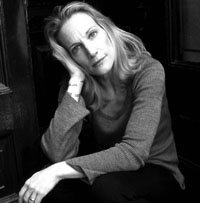Rev. of Shopping for Porcupine: A Life in Arctic Alaska by Seth Kantner
Shopping for Porcupine: A Life in Arctic Alaska, a memoir by Seth Kantner (Milkweed): Because of its engagement with the American imagination, authentic Alaska is all too often lost in overly romanticized tales of survival, or politically motivated descriptions of "barren, lifeless tundra." The best antidote for this, perhaps, is a rooted literary voice that rises from the very landscape. One of the most authentic and important voices to emerge from Alaska in recent years is Seth Kantner, who was raised near Ambler, Alaska, and has spent the bulk of his life in the Kobuk region. Shopping for Porcupine, the nonfiction follow-up to his debut novel Ordinary Wolves, is an honest and uncompromising portrait of this landscape, and of Kantner’s life there. Equal parts memoir, nature writing and personal essay, Kantner’s writing leaves the reader with a rich sense of his own history as well as the harsh beauty of Arctic Alaska and the issues it faces in a changing society.
Kantner’s story begins when his father, Howard Kantner, arrives in Alaska at the age of seventeen, to study at the university in Fairbanks. A few years later, while climbing Mt. McKinley, Howard first sees Erna as she drops food for his climbing party from her perch in a small plane. Three years later, Seth is born in a sod igloo. "My memory started under snow," he writes, "there in a dim and freezing-on-the-floor subterranean home, and it coalesced around poorly lit, scary, and exotic events." The Kantners lived a life of hunting, trapping, fishing, and dogsledding. They lived among caribou herds and grizzly bears, isolated from the nearest village in a place where " people were the exotic creatures."
Kantner’s family history is compelling in and of itself. But what lies at the heart of this book is Kantner’s respect for the Arctic wilderness he calls home and the people—especially those practitioners of traditional subsistence ways—who still inhabit it. Running parallel to this respect is an ongoing sense of loss for a past and a lifestyle that is all but disappearing. "Although I’m not nearly an elder," he writes early in the book, "sometimes it’s tough,watching all those young people and newcomers rush past with their fast and fancy equipment, with little room on board for knowledge or respect for those by-hand times so recently passed." It is a theme that runs through the book, a plea for people to examine the excess and shallowness of modern life, both inside and out of Alaska. The urban and rural conflict that pits sport hunters against a subsistence lifestyle Kantner refers to as "a bitter range war." And about trophy hunting he says, "It leaves me tormented to be from out on this land, devoted to this land, and silent. And it leaves me asking, What kind of life is that, and what kind of creature lives so selfishly?" Kantner also serves as witness to the climate changes that are more apparent each year in the region, where rains last longer and freezes come later and the brush grows thicker.
It would be easy to pass off such lamentations as the curmudgeonly gripes of a middle-aged man talking about the good old days, if the stakes weren’t so high, or if he didn’t write with so much reverence for his home. Or, if the sense of loss that he feels was not shared by so many others who write their own versions of this story. This sense of loss is palpable throughout the book, and presented in a variety of ways. In the essay titled "good-bye our season," for example, Kantner pays tribute to his friend Michio Hoshino, the Japanese photographer who was killed by a grizzly bear in Russia while on assignment. "I miss you like I would miss a season," Kantner writes to Hoshino. "And I know this land does not miss anyone, but if it did, you would be one."
It is fitting that Kantner pays tribute to a photographer, as one of the book’s great features is the photographs contained within, most of which were taken by the author himself. These images serve to enhance both the narrative he tells and the sense of place he creates.
Through his luminous imagery and engaging voice, Kantner makes the land he loves come alive, and in that life, he shows there is much worth saving. For those of us who love Alaska and the Arctic (and all wilderness for that matter), Shopping for Porcupine provides an informed and rooted voice that speaks to our deepest concerns. Lurking beneath the surface of Kantner’s honest and lyrical portrayal of this singular place is the question which grows daily more unavoidable: if the last frontier is rendered forever altered, where will we go from here? —Daryl Farmer is the author of Bicycling Beyond the Divide, a memoir.

